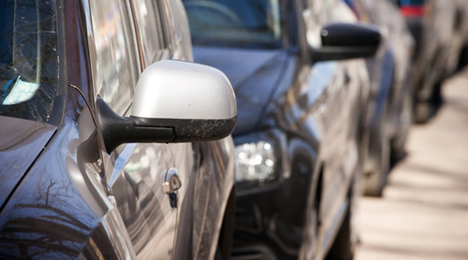DRN Points Out Inconsistent ALCU Positions on LPR

By subscribing, you agree to receive communications from Auto Remarketing and our partners in accordance with our Privacy Policy. We may share your information with select partners and sponsors who may contact you about their products and services. You may unsubscribe at any time.
FORT WORTH, Texas –
One of the returning presenting sponsors of this year’s Re3 Conference — Digital Recognition Network — continued its ongoing clash with the American Civil Liberties Union over the use of license plate recognition technology by explaining what the company believes is the group’s inconsistent positions on freedom of speech.
DRN highlighted that the ACLU clearly supports the right of private individuals to photograph anything that is in plain view, including photographing the badge number, name tag, and face of a law enforcement officer.
However, DRN has heard the ACLU state several times that photographing and storing a rectangular piece of metal with six or eight alphanumeric characters that is required to be publicly displayed and contains no personally identifiable information — such as the vehicle owner's name or phone number — amounts to surveillance and even illegal search and seizure.
DRN chief executive officer Chris Metaxas pointed out the conflicting positions of the ACLU are highlighted in the organization's campaign against the use of LPR, a technology that can automate the photography of license plates and can enable the creation of a database of license plate images along with a date and location stamp.
Metaxas emphasized that the database of images contains no personally identifiable information but is a critical tool not only in the repossession and recovery processes, but it has also allowed law enforcement to solve thousands of crimes including murders, rapes and abductions.
The DRN boss went on to note the ACLU's “misleading” rhetoric about LPR includes the following commentary: "When people feel that their movements may be recorded, they feel less comfortable traveling freely and engaging in activities that might be controversial or stigmatizing, even when those activities are important or beneficial."
Subscribe to Auto Remarketing to stay informed and stay ahead.
By subscribing, you agree to receive communications from Auto Remarketing and our partners in accordance with our Privacy Policy. We may share your information with select partners and sponsors who may contact you about their products and services. You may unsubscribe at any time.
Yet, Metaxas indicated ACLU collateral that is focused on ensuring that photographers "know your rights" says something much different: "Taking photographs of things that are plainly visible from public spaces is a constitutional right … When in public spaces where you are lawfully present you have the right to photograph anything that is in plain view."
When considering all of this material, Metaxas said, "The ACLU appears to want to change the rules of photography when it comes to LPR cameras. They seem concerned about our ability to take and store a high volume of photographs.
“Do they have the same issues with Google or other online services that make available countless photos that often reveal personally identifiable information? The ability to photograph public events in public places seems to be a cause that the ACLU would fight for, not against,” he went on to say.
Metaxas plans to discuss this subject and more during the Re3 Conference, which takes place halfway through Used Car Week. The Re3 Conference is set for Nov. 12 at the Red Rock Casino, Resort and Spa in Las Vegas.
Along with presenting sponsor Primeritus Financial Services, the Re3 Conference is set to highlight presentations and panel discussions on a wide array of topics associated with the repossession, recovery and remarketing of vehicles. Executives from DRN, Primeritus, Santander Consumer USA, van Wagenen Financial Services, MVTRAC, American Lending Solutions and more are all on tap to be a part of the event.
For more details about the Re3 Conference as well as the opportunity for registration discounts, go to re3.autoremarketing.com.


